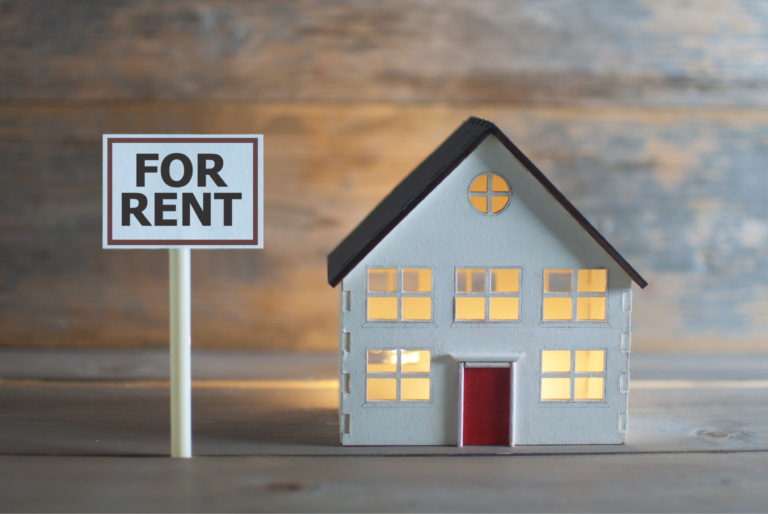When Governor Ferguson signed House Bill 1217 (HB 1217) into law, Washington became the third state in the country to enact statewide rent control. The goal? Protect tenants from unpredictable and unaffordable rent hikes. But for property owners, especially small landlords, the impact is more than just procedural—it’s financial.
If you’re wondering how HB 1217 will affect your bottom line, you’re not alone. The truth is, this law reshapes how rental income is generated and how fast landlords can adapt to rising costs.
In this article, we’ll break down how the rent control impact on landlords plays out in real numbers, and what you can do to protect your ROI in Washington under these new regulations.
Rent Caps: The Core of HB 1217
The most immediate effect of HB 1217 is the statewide limit on rent increases. Here are the key rules:
- Annual rent increases are capped at 7% plus the Consumer Price Index (CPI) or 10% max, whichever is lower.
- For manufactured housing communities, the cap is stricter: 5% annually.
In a high-inflation economy, these limits may sound generous. But for landlords with rising property taxes, insurance premiums, HOA fees, and labor costs, these caps can strain cash flow.
Need help calculating how much you can legally raise rent? Request a custom rent analysis.
What This Means for Your Profit Margins
Landlords often operate on thin margins. Between maintenance, mortgage payments, vacancy losses, and property management costs, most landlords only realize modest returns—even in a strong market.
HB 1217 tightens the ability to adjust income in response to rising expenses.
Here’s a basic example:
- You rent a unit for $2,000/month.
- CPI this year is 2%.
- Your legal rent increase limit is 9% (7% + 2%) = $180 max.
But what if your insurance premiums and property taxes alone increased by 15%?
You’re now losing ground—and your profit margin shrinks.
Want to track and optimize your ROI under the new rules? Talk to our rental performance team.
How to Protect Your ROI Under Rent Control
Despite the restrictions, there are still ways to maintain profitability. Here’s how:
1. Price Smart from the Start
Once a tenant signs a lease, your ability to raise rent is capped. That’s why it’s crucial to start with a market-optimized rent price.
At SJA, we use:
- Local comp analysis
- Seasonality trends
- Property features and condition
We make sure you’re never leaving money on the table.
2. Minimize Vacancy Gaps
Lost rent is one of the biggest threats to ROI. Filling a vacancy 1-2 weeks faster can offset the slower income growth.
That means:
- Professional listings
- Quick response to inquiries
- Pre-listing property prep
3. Invest in Property Condition
Better-maintained homes attract higher rents within the legal cap. Energy-efficient upgrades, updated finishes, and curb appeal all increase rental value.
Want to identify cost-effective upgrades for your property? Ask about our Rent Ready checklist.
4. Get Strategic with Lease Terms
Consider offering 15-18 month leases to delay when the next increase cap applies. Just ensure you remain in full compliance with notice periods and tenant communication.
5. Know If You’re Exempt
Properties built in the last 12 years or designated as certain types of affordable housing are exempt from HB 1217. If your property qualifies, you may have more pricing flexibility.
Not sure if your property qualifies for an exemption? Let us help you find out.
The Bigger Picture: Investor Confidence
Beyond individual rentals, HB 1217 may shift how investors view Washington’s rental market.
Some worry that reduced flexibility will discourage future housing development. Others believe increased stability will lead to more consistent tenancies and reduced turnover costs.
Wherever you fall, one thing is clear: Landlords who adapt quickly will be the ones who thrive.
HB 1217 is a game-changer for Washington landlords. But it doesn’t have to derail your investment goals.
By focusing on smart pricing, tenant retention, and operational efficiency, you can continue to build steady rental income while staying compliant.
At SJA Property Management, we help landlords like you adjust to market shifts, comply with new laws, and protect your long-term profitability.
Let us help you navigate rent control and maximize your ROI. Book your free consultation today.
Disclaimer:
This article is for informational purposes only and does not constitute legal advice. Please consult with a qualified attorney for advice related to your specific situation.






